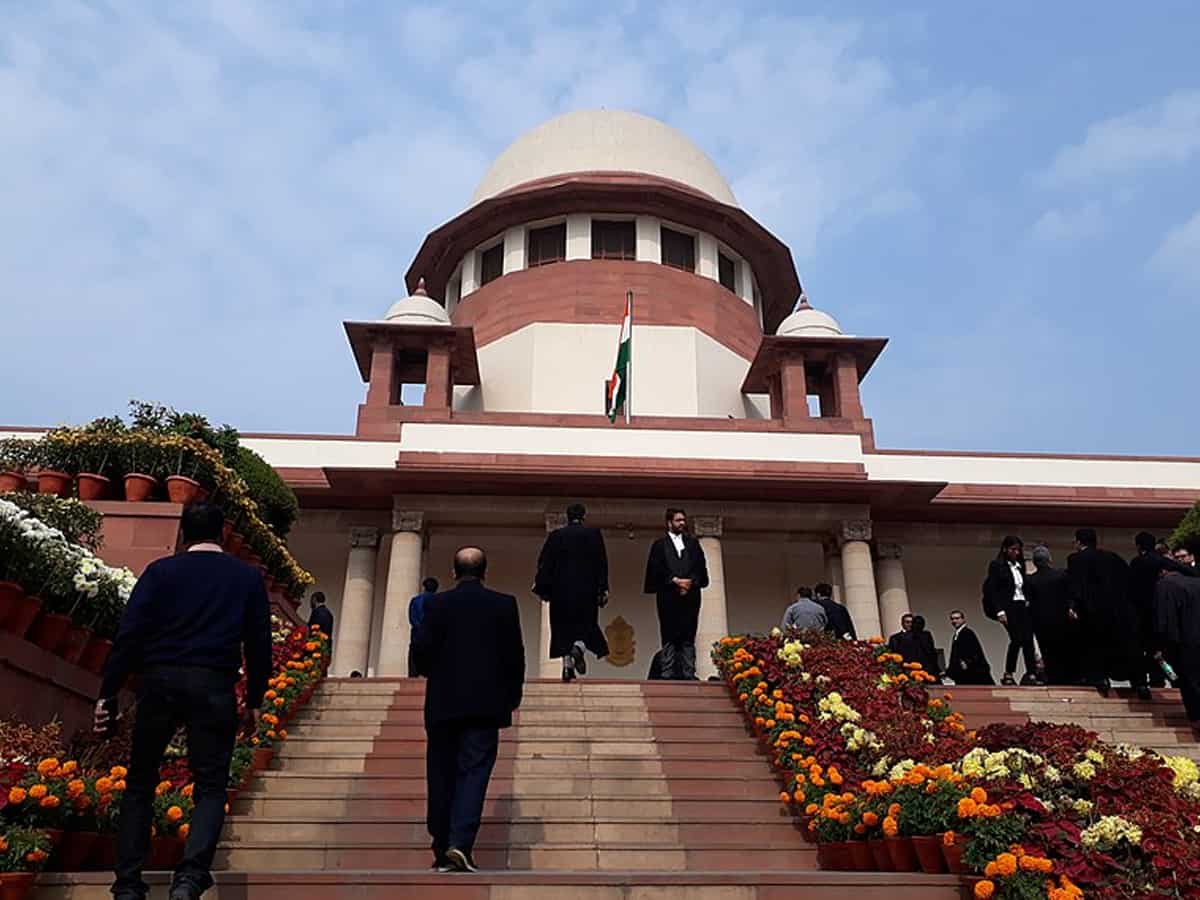
New Delhi: A Public Interest Litigation (PIL) has been moved in the Supreme Court challenging the validity of the Places of Worship Act, 1991, stating it seeks to validate ‘places of worship’, illegally made by barbaric invaders.
Petitioner and former Member of Parliament Chintamani Malviya through Advocate Rakesh Mishra sought to direct and declare that Section 3 of the Places of Worship Act, 1991 is void and unconstitutional for being violative of Articles 14, 15, 21, 25, 26, 29 of the Constitution.
Article 13(2) prohibits the state to make laws to take away the rights conferred under Part-III but the Act takes away the rights of Hindus Jains Buddhist Sikhs to restore their ‘places of worship and pilgrimages’, destroyed by barbaric invaders, it said.
It excludes the birthplace of Lord Rama but includes the birthplace of Lord Krishna, though both are the incarnation of Lord Vishnu, the Creator and equally worshipped all over the world, hence arbitrary, irrational and offends Articles 14-15. Right to justice, right to a judicial remedy, and right to dignity are an integral part of Article 21 but the impugned Act brazenly offends them, the plea added.
“Rights to pray, profess, practice and propagate the religion of Hindus Jains Buddhists Sikhs, guaranteed under Article 25, have been deliberately and brazenly offended by the Act. The Act blatantly offends the rights of Hindus Jains Buddhists Sikhs to restore, manage, maintain and administer the ‘places of worship and pilgrimage’, guaranteed under Article 26,” read the PIL.
It further stated that the right to restore and preserve the script and culture of Hindus, Jains, Buddhists, and Sikhs, guaranteed under Article 29 has been brazenly offended by the Act. “Directives are nevertheless fundamental in the governance of the country and Article 49 directs the state to protect places of national importance from disfigurement and destruction.
“The state is obligated to respect the ideals and institutions and value and preserve the rich heritage of Indian culture. Only those places can be protected, which were erected or constructed in accordance with the personal laws of the person who erected/constructed them, but places erected/constructed in derogation of the personal law, cannot be termed a “place of worship, ” it said.



